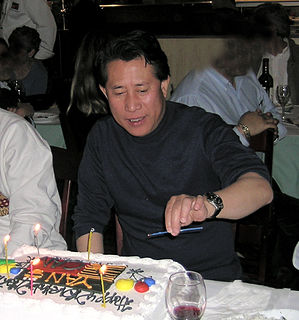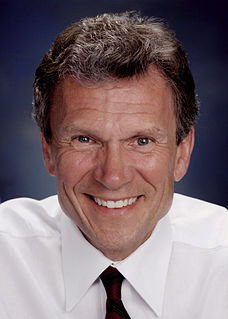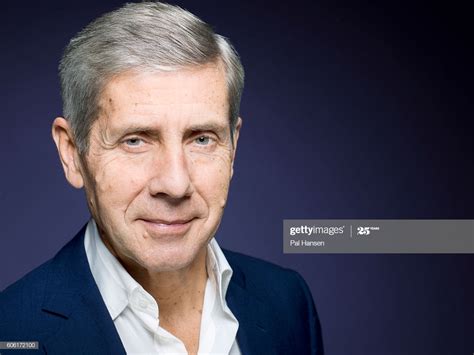A Quote by Mike Gallagher
Since I'm a professional communicator, I think I instinctively cling to doing what I do best, even in times of crisis and turmoil.
Quote Topics
Related Quotes
As we go through life, even through very rough waters, a father's instinctive impulse to cling tightly to his wife or to his children may not be the best way to accomplish his objective. Instead, if he will lovingly cling to the Savior and the iron rod of the gospel, his family will want to cling to him and to the Savior.
First of all, as a professional, you can run around saying "artists, schmartists" as much as you want. But I'm a professional, so if somebody hires me for something, I'm going to bring my best to it. They've hired me, I'm professional, I show up on time, I do my job. That's what we're doing. So in that sense, it's always both things.
Indeed, being a beginner is very difficult right now. Book publishers are in a crisis, sales are dwindling, and publishing houses are losing money, doing their best to survive. It's a sign of the times, the emergence of new kinds of entertainment -- there's nothing we can do about it. I don't think books will perish for good. They could become less widespread, though, falling even further behind movies and computer games. But we shouldn't be afraid of this, because books will always remain the entertainment of choice for intelligent people, of whom there are still many in this world.
Art movements are always linked to some kind of turmoil. We can look at history and see that [political turmoil is] fertile ground for art. I also think that it gives artists something, a way of kind of processing. My friends and I have all been super motivated to work and to do the work that we need to and want to and think should be in the world. Hard times are really a fire under your ass to prioritize and think, "Okay, how can I challenge myself to put something in the world that wasn't there that can reach other folks and help them to process"?
We've been talking about the Syrian refugee crisis a lot, in the news in the U.K. and possibly the U.S., but it isn't the only refugee crisis that is happening at this minute. There's something like 22 million refugees in the world. There are people from Eritrea, Afghanistan, Syria, and so many other places where people are living in complete turmoil.
Trust doesn't come haphazardly. It really has to be built over time. And that trust has to happen really at times when there isn't a crisis. That's why I think having regular meetings and conversation when there's no crisis, when you can build trust and a friendship and a relationship that allows for better dialogue and far more consequential deal-making can occur when a crisis does come up.
When my mother died, my father was in a crisis, my sister was in a crisis, everyone was in a crisis. I went round the night my mother was lying in the kitchen, and I organised everything, from the undertaker to the funeral... I looked after everybody, I sorted it all out and I've done so ever since.



































